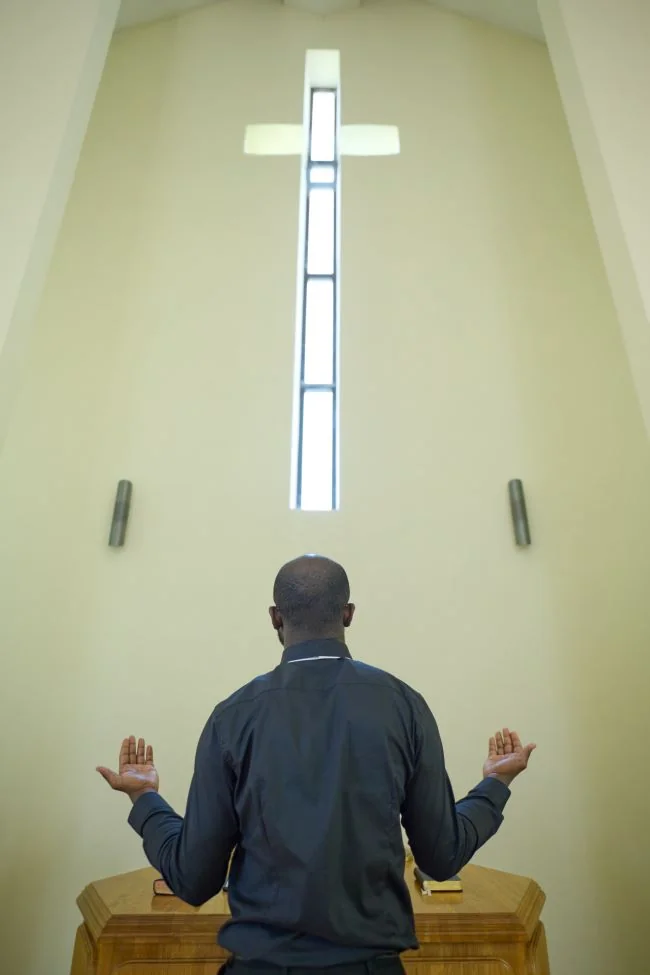In these uncertain times, many individuals struggle with anxiety, fear, and uncertainty. The feeling of anxiety can be overwhelming, impacting daily life and overall well-being. However, through the practice of prayer and meditation, it is possible to find peace and navigate these challenges with greater resilience. This article explores how prayerful meditation can be a powerful tool in reducing anxiety and fostering a sense of calm amidst the storm.
Understanding Anxiety
What is Anxiety?
Anxiety is a natural human emotion characterized by feelings of worry, nervousness, or unease, typically about an imminent event or something with an uncertain outcome. While a certain amount of anxiety and stress can be adaptive, prompting us to prepare and take precautions, excessive or persistent anxiety can become debilitating. Severe anxiety may manifest as a generalized anxiety disorder, panic attacks, or phobias, significantly impacting an individual’s quality of life.
Common Symptoms of Anxiety
The symptoms of anxiety can vary widely from person to person, but some common indicators include both mental and physical manifestations. These can present as:
- Excessive worry, restlessness, fatigue, difficulty concentrating, and irritability.
- Physical symptoms like rapid heart rate, sweating, trembling, and shortness of breath, which may also accompany anxiety and panic attacks.
Recognizing these symptoms is the first step in addressing and managing anxiety effectively, paving the way for finding peace.
Impact of Anxiety on Daily Life
The impact of anxiety on daily life can be profound. It can interfere with work, school, relationships, and overall well-being. Individuals may experience difficulty making decisions, completing tasks, or engaging in social activities due to anxious thoughts and fear and anxiety. Furthermore, anxiety and depression often coexist, exacerbating the challenges faced. Learning ways to help oneself manage anxiety is crucial for maintaining a fulfilling and productive life, reducing the amount of anxiety experienced daily.
Prayerful Meditation as a Tool
What is Prayerful Meditation?
Prayerful meditation is a practice that combines the elements of prayer and meditation to deepen one’s spiritual connection and find peace. It involves focusing the mind on a sacred word, phrase, psalm, or image while cultivating a sense of presence and openness to divine guidance. By engaging in prayer and meditation, individuals can reduce anxiety, quiet the mind, and develop an understanding of inner peace and tranquility, even in uncertain times, to find peace.
How Meditation Helps Alleviate Anxiety
Meditation, especially when combined with prayer, can be a powerful tool to reduce anxiety. It helps to calm the nervous system, reduce anxious thoughts, and promote relaxation. When you meditate, you focus on the present moment, which can help to interrupt the cycle of worry and fear. Prayer and meditation together can bring comfort and strength, assisting individuals to cope with anxiety and stress and promoting a sense of calm, especially during moments of anxiety.

Different Techniques for Prayerful Meditation
Here are some techniques you can use for prayerful meditation. These include:
- Breath prayer, which focuses on deep breathing while repeating a meaningful phrase.
- Guided meditations using scripture, which can help visualize peaceful scenes.
- Reciting a psalm, which can bring comfort and reassurance.
Experimenting with these or other techniques allows individuals to discover the most effective ways to help them meditate and reduce anxiety.
Navigating Uncertainty in Uncertain Times
Recognizing Sources of Uncertainty
In these uncertain times, uncertainty and fear can stem from various sources, including global events, economic instability, health concerns, and personal challenges. Recognizing these sources is the first step in managing the feelings of anxiety they provoke. By acknowledging the specific anxieties that arise, individuals can begin to address them proactively and find peace. Understanding the root causes of fear and anxiety is key to effectively navigating uncertainty.
Strategies for Coping with Uncertainty
Coping with uncertainty requires developing resilience and implementing practical strategies. One effective approach is to focus on what you can control, such as your daily routine, self-care practices, and responses to challenges. Seeking support from friends, family, or a therapist can also provide valuable assistance in managing feelings of anxiety. Engaging in activities that bring joy and relaxation can help alleviate anxiety, promote emotional well-being, and foster a sense of peace.
The Role of Meditation in Managing Uncertainty
Meditation plays a crucial role in managing uncertainty, fear, and anxiety by helping individuals cultivate a sense of inner peace and resilience. Through regular practice, you can train your mind to stay grounded in the present moment, reducing the impact of anxious thoughts about the future. Prayer and meditation can also help you find strength and guidance, allowing you to approach uncertainties with greater courage and faith. By incorporating meditation into your daily routine, you can better navigate the challenges of uncertain times.
In conclusion, navigating uncertainty, anxiety, and fear requires a multifaceted approach, and prayerful meditation stands out as a powerful tool to find peace. By understanding the nature of anxiety, utilizing prayer and meditation techniques, and developing strategies for coping with uncertainty, individuals can cultivate resilience and maintain emotional well-being in these uncertain times. Regular meditation can reduce anxiety and foster a sense of calm, helping to guard your hearts and minds. Remember Philippians 4:6-7, encouraging us to meditate.
Finding Peace Through Meditation
Steps to Meditate for Peace
To begin your meditation journey, you can find a quiet space where you can sit. Start with just a few minutes each day, gradually increasing the duration as you become more comfortable. Focus on your breath, noticing the rise and fall of your chest. When your mind wanders, gently guide it back to your breath. This practice can help you reduce anxiety and find peace amidst the daily challenges, especially in moments of anxiety. Regular prayer and meditation can transform one’s life.
Creating a Peaceful Meditation Space
Your meditation space should be free from distractions and conducive to relaxation. Consider using soft lighting, calming colors, and comfortable cushions or blankets. You might also include items that inspire peace, such as candles, crystals, or nature scenes. Creating a serene environment can enhance your meditation practice, making it easier to quiet your mind and reduce anxiety. A dedicated space can also help with anxiety and panic attacks, ensuring you feel safe and secure when you meditate.
Incorporating Prayer into Meditation Practice
Incorporating prayer into your meditation practice can deepen your spiritual connection and enhance your sense of peace. Begin by reciting a prayer or psalm that resonates with you. Reflect on the meaning of the words and allow them to fill your heart and mind. You can also use breath prayer, focusing on a meaningful phrase with each deep breath. This combination of prayer and meditation can be a powerful tool for managing fear and anxiety and finding peace during uncertain times.
Conclusion
Recap of Key Points
Throughout this article, we’ve explored the impact of anxiety on daily life and how prayerful meditation can serve as a powerful tool for finding peace. We’ve discussed various meditation techniques, including breath prayer and guided meditations, and highlighted strategies for navigating uncertainty and fear. Remember that consistent practice is key to experiencing the full benefits of meditation and reducing the amount of anxiety in your life. Embracing these ways to help can make a huge difference.
Encouragement to Practice Meditation
I encourage you to incorporate meditation into your daily routine, even if it’s just for a few minutes each day. The benefits of meditation for anxiety and stress reduction are well-documented. By taking the time to quiet your mind and connect with your inner self or with God, you can cultivate a greater sense of peace, resilience, and well-being. Embrace the power of prayer and meditation to transform your life, especially during uncertain times and moments of anxiety.
Final Thoughts on Finding Peace
Finding peace in the midst of uncertainty, anxiety, and fear is possible through the practice of prayerful meditation. Remember that you are not alone in your struggle with anxiety, and there are tools and resources available to support you. By cultivating a daily meditation practice and connecting with your spiritual side, you can navigate life’s challenges with greater calm, courage, and peace. Let prayer and meditation guard your hearts and minds against anxiety and panic attacks, and reduce anxiety.





